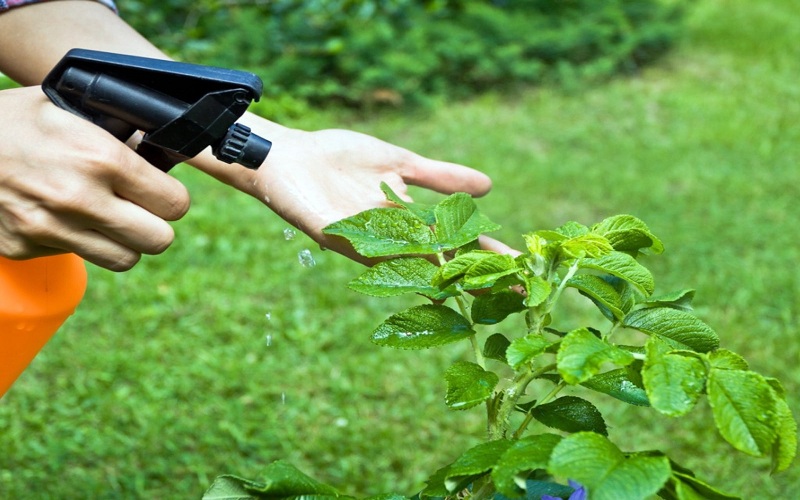
Weighing the Benefits and Drawbacks of Chemical versus Natural Pest Control
In the realm of pest control, the age-old debate persists: chemical versus natural methods. In a world where pests can wreak havoc on homes and businesses, it’s essential to consider the merits and drawbacks of each approach. Whether you’re dealing with cockroaches, bedbugs, or other pests in Columbus, Ohio, understanding the implications of your pest control choices is crucial.
We will explore the advantages and disadvantages of chemical versus natural pest control in Columbus Ohio to help you make an informed decision.
Chemical Pest Control:
Chemical pest control involves the use of synthetic pesticides and insecticides to eradicate pests. Here are some key points to consider:
- Efficiency: Chemical pesticides often provide quick and effective results in eliminating pests. Professional exterminators can target specific areas and apply potent chemicals to eradicate infestations swiftly.
- Wide Range of Coverage: Chemical pesticides are designed to target a broad spectrum of pests, making them suitable for various infestations, including cockroaches and bedbugs.
- Convenience: Many chemical pest control products are readily available for purchase at local stores, and professional services are widely accessible, especially in urban areas like Columbus, Ohio. This accessibility makes chemical pest control a convenient option for many homeowners and businesses.
- Long-lasting Effects: Some chemical pesticides used by roach exterminator or other pest control experts offer residual effects, providing continued protection against pests even after the initial application. This can be particularly beneficial in preventing reinfestation.
Drawbacks of Chemical Pest Control:
While chemical pest control may offer immediate relief, it comes with its share of drawbacks. So take a look at these drawbacks before you search for “bedbug control near me” or any other pest control services.
- Health Concerns: The primary concern with chemical pesticides is their potential impact on human health and the environment. Exposure to these chemicals can pose risks to residents, pets, and wildlife, leading to respiratory issues, skin irritations, and other health problems.
- Environmental Impact: Chemical pesticides can contaminate soil, water sources, and non-target organisms, causing ecological imbalances and harming beneficial insects, birds, and other wildlife.
- Resistance Development: Prolonged use of chemical pesticides can lead to the development of resistance in pest populations, rendering certain chemicals ineffective over time. This necessitates the constant development of new, potentially more harmful pesticides.
- Regulatory Restrictions: Government regulations impose restrictions on the use of certain chemical pesticides, particularly those deemed hazardous to human health and the environment. Compliance with these regulations adds complexity and cost to chemical pest control operations.
Natural Pest Control:
Natural pest control methods rely on non-toxic alternatives to synthetic chemicals. Here are the advantages of opting for natural pest control:
- Safety: Natural pest control methods pose minimal risks to human health, pets, and the environment. By utilizing organic substances, such as plant-based oils and biological agents, natural pest control minimizes exposure to harmful chemicals.
- Eco-Friendly: Natural pest control promotes environmental sustainability by utilizing biodegradable and non-toxic substances. These methods help preserve biodiversity and protect beneficial insects, such as bees and ladybugs, which play vital roles in ecosystems.
- Low Risk of Resistance: Unlike chemical pesticides, natural pest control methods are less likely to contribute to the development of resistance in pest populations. This makes them a sustainable long-term solution for pest management.
- Safe for Indoor Use: Natural pest control products are suitable for indoor applications, providing homeowners with a safe and effective alternative to chemical sprays and fogs. This is especially important when dealing with pests like cockroaches and bedbugs in residential settings.
Drawbacks of Natural Pest Control:
Despite their eco-friendly nature, natural pest control methods have some limitations:
- Effectiveness: Natural pest control products may take longer to show results compared to their chemical counterparts. Additionally, they may not be as effective in treating severe infestations or targeting specific pest species. So, searching for “cockroaches control near me” might be a better option.
- Limited Availability: While natural pest control products are becoming more widely available, they may not be as accessible as chemical pesticides in some areas. This can pose challenges for homeowners seeking immediate solutions to pest problems.
- Residual Effects: Some natural pest control methods may lack residual effects, requiring more frequent applications to maintain pest-free environments. This can be inconvenient and time-consuming for homeowners and businesses.
- Cost Considerations: Natural pest control products and services may be more expensive upfront compared to chemical alternatives. However, the long-term benefits of reduced environmental impact and improved health outcomes may outweigh the initial investment on bed bug exterminators or other types of professional pest control services.
Conclusion
When weighing the benefits and drawbacks of chemical versus natural pest control methods, it’s essential to consider factors such as efficacy, safety, and environmental impact. While chemical pesticides offer immediate results and widespread availability, they come with potential health and environmental risks. On the other hand, natural pest control methods prioritize safety and sustainability but may require more time and resources to achieve desired outcomes. Ultimately, the choice between chemical and natural pest control depends on individual preferences, the severity of the infestation, and the commitment to promoting a healthy and eco-friendly environment.

